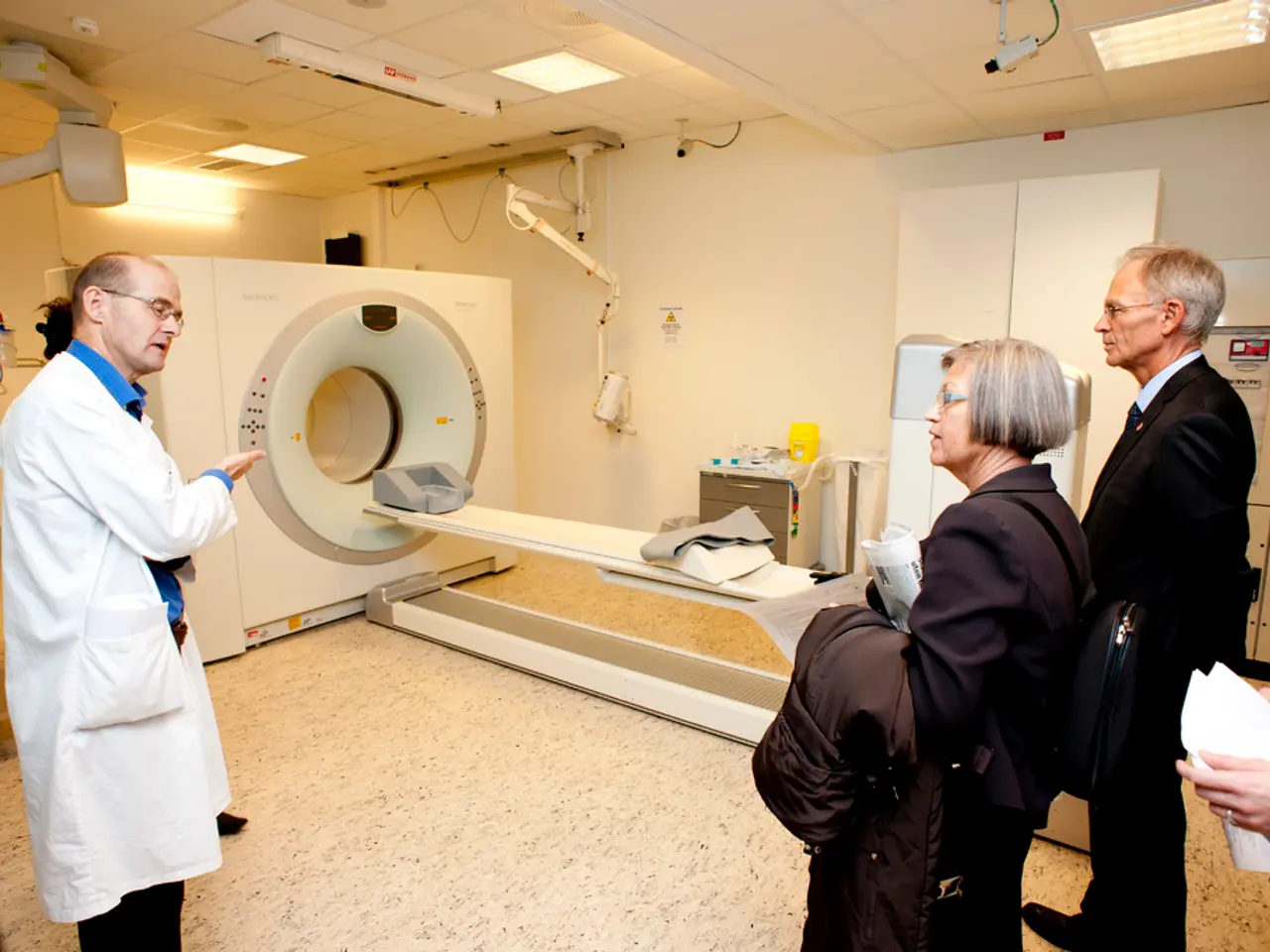Utilization of Big Data Strategies in the Healthcare Sector
In the rapidly evolving world of healthcare, Artificial Intelligence (AI) is making a significant impact, particularly in the areas of hospitalization forecasting, clinical workflow optimization, and diagnostic support.
As of 2025, AI is actively used to forecast hospitalizations and guide clinical workflows. Multiple pilot programs and operational deployments have demonstrated tangible benefits, with AI systems automating complex data extraction from medical records for streamlined patient discharge processes. This enables hospitals to speed up patient flow and free beds efficiently [1][2].
One key application of this technology is the use of AI-driven discharge summaries. For instance, at the Chelsea and Westminster Trust within the NHS, AI tools automatically extract diagnostic and test data to draft patient discharge summaries, which are then reviewed by clinicians. This reduces paperwork, accelerates discharges, and optimizes bed availability [1].
AI also plays a crucial role in enhancing clinical workflows through AI-powered Electronic Health Records (EHRs). Oracle's next-gen AI-enabled EHR uses conversational, voice-first AI agents to provide clinicians with contextual insights on patient labs, medications, and care plans. This shift from legacy, manual-data-entry EHRs to intelligent, workflow-supportive systems can significantly reduce administrative burden and enable physicians to focus more on patients [4].
Moreover, AI systems are capable of forecasting hospitalization-related risks and issuing clinical alerts. Institutions like the Duke Institute for Health Innovation use AI to continuously assess patient data to forecast risks such as sepsis onset hours before clinical symptoms manifest. This early intervention could potentially save lives [2].
In the diagnostic field, AI serves as a second reader in imaging, improving diagnostic sensitivity and detecting tumors that human readers may miss. This direct influence on patient prognosis and workflow efficiency by reducing errors and missed cases is a testament to AI's transformative potential in healthcare [1][2].
Despite the promising advancements, AI adoption in healthcare lags behind other industries. However, its role in hospitalization forecasting and optimizing clinical workflows is becoming increasingly integral, supported by investments, regulatory frameworks, and collaboration between health systems and AI technology providers [3][5].
Hospitals like Holy Name Medical Center in northern New Jersey have embraced this digital transformation, redesigning their electronic medical records platform in 2020 and issuing digital vaccine cards. UNC Health has integrated the information generated from these technologies into its data warehouse, with the upgrade enabling the integration of a new data set into the platform in a matter of days, compared to weeks with the previous system [6].
UNC Health has also deployed new telemedicine capabilities, an online symptom-checker chatbot, and automated models to forecast hospitalizations during the pandemic in 2020. The institution has further implemented the Tableau analytics platform, enabling customized dashboard creation for individual business units [7].
Cleveland Clinic's collaboration with IBM, the Discovery Accelerator, uses high-performance computing and aims to educate the future workforce. The Discovery Accelerator also focuses on developing methods and practices for quantum technologies [8].
In summary, AI is currently transforming healthcare by improving hospitalization forecasting through early risk detection systems, automating administrative tasks such as discharge summaries, and guiding clinical workflows via intelligent EHRs and diagnostic assistance. This enhancement of patient outcomes and operational efficiencies is a promising step towards a more technologically advanced healthcare system.
References:
[1] Healthcare IT News. (2021). AI in healthcare: A look at the current state and future potential. Retrieved from https://www.healthcareitnews.com/news/ai-healthcare-look-current-state-and-future-potential
[2] Healthcare IT News. (2021). AI for sepsis detection: Duke Health's early warning system. Retrieved from https://www.healthcareitnews.com/news/ai-sepsis-detection-duke-healths-early-warning-system
[3] McKinsey & Company. (2018). Unlocking the potential of AI in healthcare. Retrieved from https://www.mckinsey.com/industries/healthcare-systems-and-services/our-insights/unlocking-the-potential-of-ai-in-healthcare
[4] Oracle. (2021). Oracle Health Sciences AI-enabled EHR. Retrieved from https://www.oracle.com/industries/health-sciences/ai-enabled-ehr.html
[5] Healthcare IT News. (2021). AI in healthcare: A look at the current state and future potential. Retrieved from https://www.healthcareitnews.com/news/ai-healthcare-look-current-state-and-future-potential
[6] Healthcare IT News. (2021). UNC Health deploys new telemedicine capabilities, online symptom-checker chatbot. Retrieved from https://www.healthcareitnews.com/news/unc-health-deploys-new-telemedicine-capabilities-online-symptom-checker-chatbot
[7] Healthcare IT News. (2021). UNC Health implements Tableau analytics platform for customized dashboards. Retrieved from https://www.healthcareitnews.com/news/unc-health-implements-tableau-analytics-platform-customized-dashboards
[8] Cleveland Clinic. (2021). Cleveland Clinic and IBM launch Discovery Accelerator to drive innovation in healthcare. Retrieved from https://newsroom.clevelandclinic.org/2021/02/22/cleveland-clinic-and-ibm-launch-discovery-accelerator-to-drive-innovation-in-healthcare/
In the realm of data and cloud computing, AI systems are being utilized to analyze medical records and forecast hospitalizations, optimizing bed availability for hospitals. Furthermore, AI is being incorporated into healthcare technology to enhance clinical workflows and EHR systems, providing physicians with contextual insights and reducing administrative burden.




